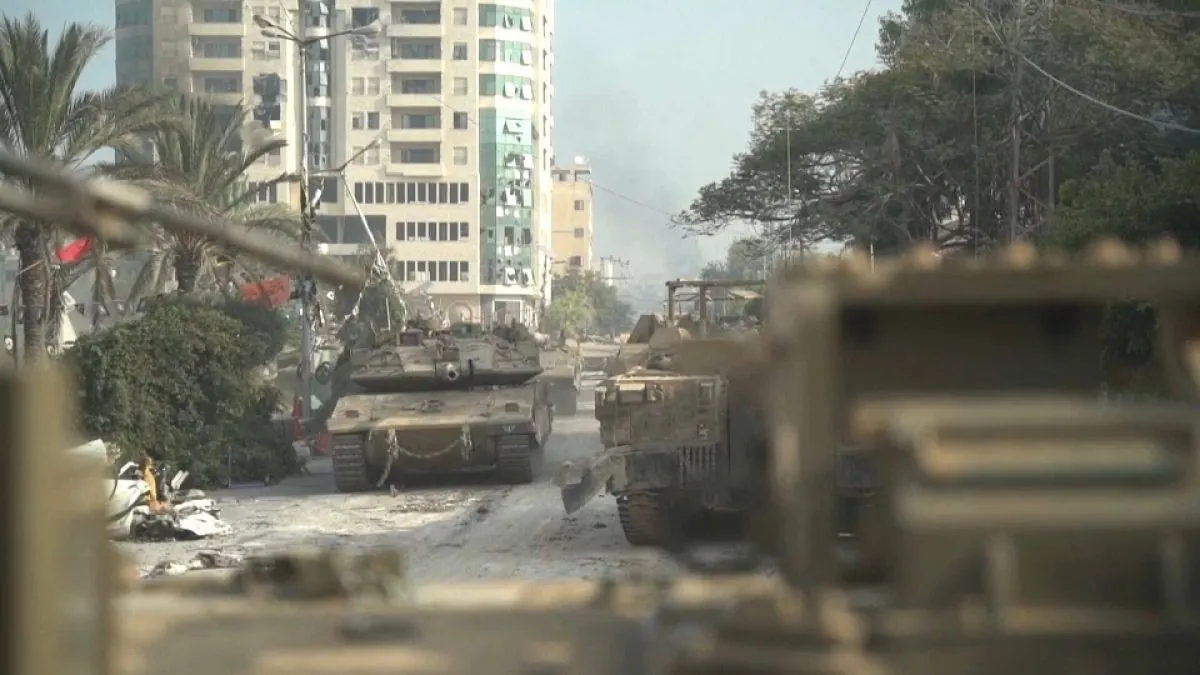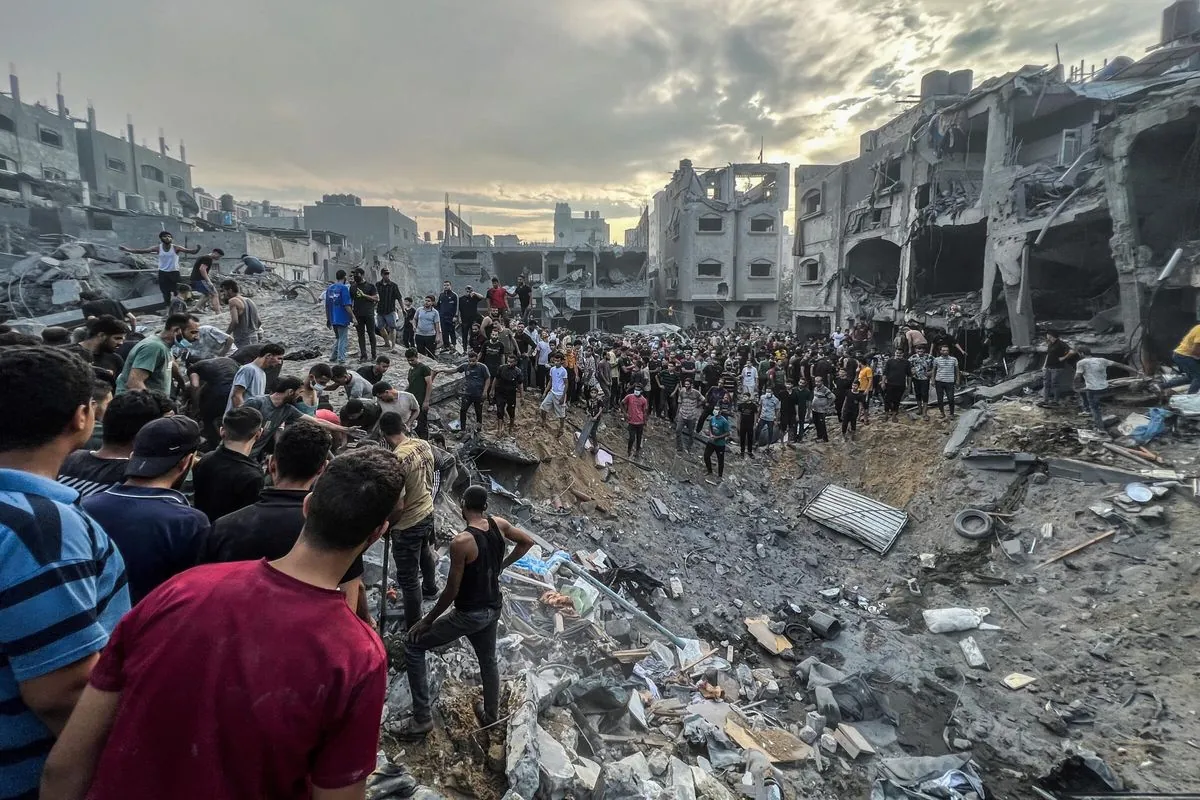Israel-Hamas War: One Year On, Peace Remains Elusive
As the Israel-Hamas conflict enters its second year, prospects for peace seem distant. Regional tensions escalate, humanitarian crisis deepens in Gaza, and political obstacles hinder resolution efforts.

One year after the devastating Hamas attack on Israel, the prospects for peace between Israelis and Palestinians appear more remote than ever. Despite diplomatic efforts by the U.S., Egypt, and Qatar, the conflict in Gaza remains unresolved and is spreading across the region.
The war has had far-reaching consequences, not only for Gaza but for the entire Middle East. Regional experts and analysts offer diverse perspectives on the current situation and potential future developments.
Dana El Kurd, a senior nonresident fellow at the Arab Center Washington, argues that the conflict is likely to escalate and spread. She points out that the Israeli government's actions in Gaza and the West Bank are exacerbating tensions and displacing Palestinians. El Kurd notes that the Palestinian issue remains a catalyst for regional unrest and anti-authoritarian dissent.

The humanitarian crisis in Gaza has reached catastrophic levels. The Gaza Strip, one of the most densely populated areas in the world, has seen widespread destruction of infrastructure and displacement of its population. The United Nations Relief and Works Agency (UNRWA) continues to provide essential services to Palestinian refugees under increasingly difficult circumstances.
Amit Segal, chief political analyst for Israel's Channel 12 News, presents an Israeli perspective. He argues that the conflict will continue until Israel's enemies recognize the futility of their attempts to destroy it. Segal draws parallels between the current situation and historical conflicts, emphasizing the need for a shift in regional dynamics.
From a military standpoint, M.L. deRaismes Combes and John Nagl of the U.S. Army War College suggest that while the intensity of the conflict may be decreasing, the war is far from over. They highlight the challenges posed by Gaza's extensive tunnel system and warn that Israel's approach may be creating a new generation of militants.
Political obstacles continue to hinder efforts to end the conflict. Ahmed Fouad Alkhatib, a resident senior fellow with the Atlantic Council, points to Israeli Prime Minister Benjamin Netanyahu's insistence on controlling the Philadelphi Corridor as a major stumbling block in cease-fire negotiations. This narrow buffer zone between Gaza and Egypt has become a focal point of contention.
The conflict's impact extends beyond Israel and Palestine. Marwan Muasher, former Jordanian deputy prime minister, outlines the difficult position Jordan finds itself in. The country must balance its relationship with Israel against growing public anger over the war in Gaza.
"Jordan will have to walk a tightrope after the war."
In the West Bank, the situation continues to deteriorate. Hagar Shezaf, West Bank correspondent for Haaretz, reports on increasing violence and the "Gazafication" of the territory. Israeli military operations have intensified, and there are concerns about potential long-term occupation or even settlement of Gaza.
The Israeli parliament's passage of a law against a two-state solution in July 2023 further complicates prospects for peace. This move, along with the expansion of Israeli settlements in the West Bank, has raised concerns about the viability of a future Palestinian state.
As the conflict enters its second year, the path to resolution remains unclear. The humanitarian crisis in Gaza, ongoing violence in the West Bank, and regional tensions continue to pose significant challenges. Without a substantial shift in approach from all parties involved, the Israel-Hamas war may be far from its conclusion.


































